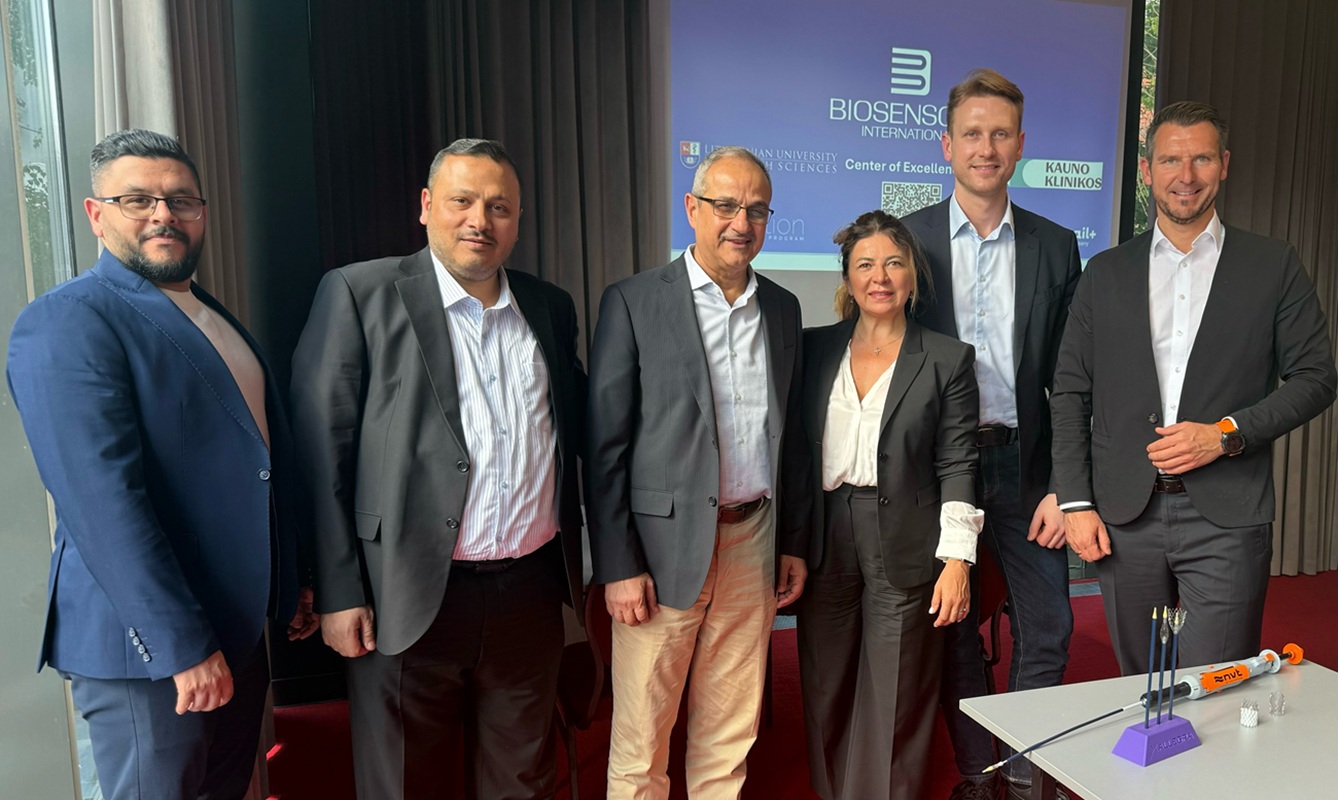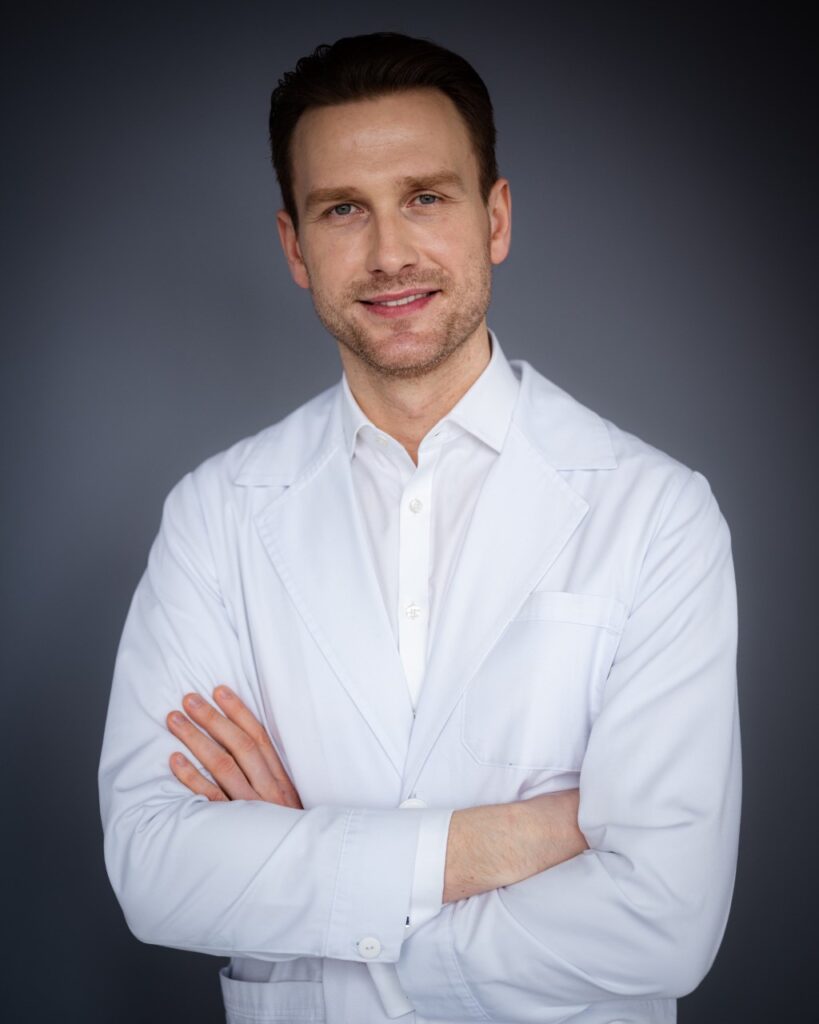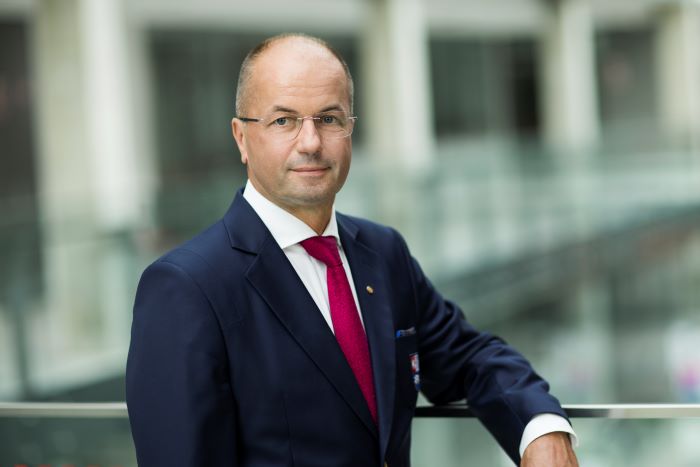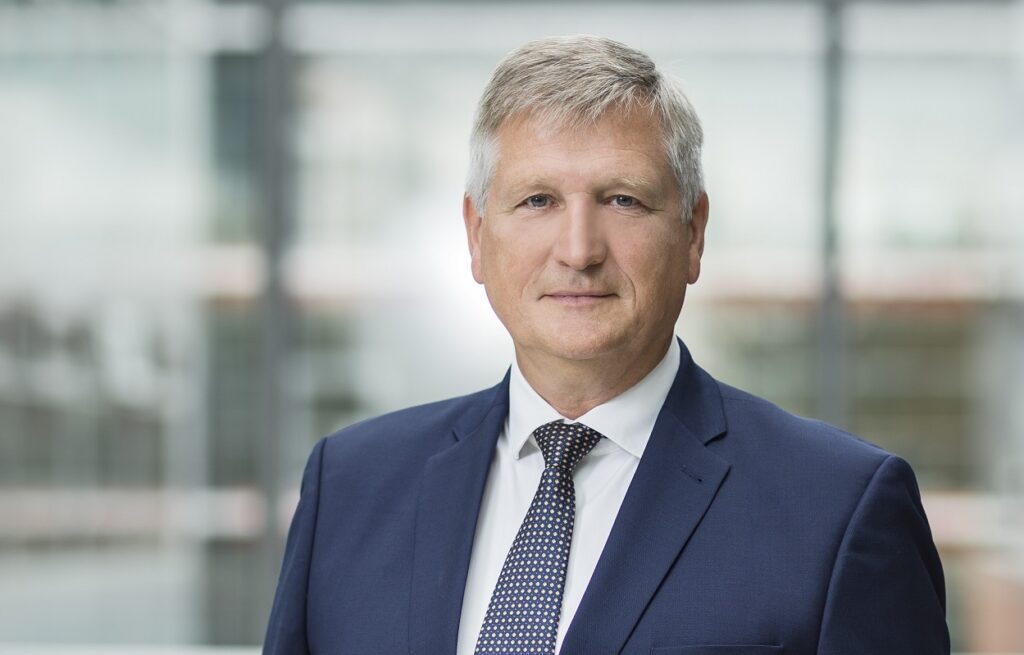LSMU Department of Cardiology’s International Centre of Excellence: Collaboration with the Swiss heart device maker

The Lithuanian University of Health Sciences (LSMU) continues its targeted development in the fields of internationality and innovation – an international cooperation agreement has been signed with the Swiss manufacturer Biosensors of implanted cardiac devices on the partnership between research and experimental development (R&D). This strategic partnership marks the establishment of a new international Centre of Excellence at LSMU Department of Cardiology, strengthening the University’s activities in the fields of research, innovation and specialised training.
“A deliberate, well-planned step towards a methodical, global process of training and information transfer is the creation of the International Centre of Excellence,” said Dr. Kasparas Briedis, Head of the Structural Heart Disease Interventions Sector at LSMU Department of Cardiology and Head of this International Programme.

He claims that one of the Centre’s primary objectives is to create intricate training curricula that combine lectures, case studies, work with intervention procedure simulators, and hands-on surgical experience for physicians and other healthcare professionals from around the globe.
“I have spent the last five years imparting useful information on the management of structural heart disease at locations across the globe, from Western Europe and Asia to Latin America and the Middle East. We can now methodically apply this expertise to our institution in Lithuania to create academically grounded, long-term training programmes that are accessible to the global population,” said Dr. Briedis.
The LSMU Centre of Excellence has become the ninth in the world, officially accredited by Biosensors as an international training centre for structural cardiac interventions. This programme’s first session was held in Kaunas on May 25–26. It was a two-day intense programme that comprised theoretical lectures, workshops, training with simulations of intervention procedures, expert discussions, and participation in transcatheter heart surgeries. According to Dr. Briedis, the Centre of Excellence, not only includes training, but also active involvement in the international research community.
“Increasing engagement in international multi-centre research that evaluates the most cutting-edge structural cardiac intervention technologies, and their therapeutic advantages is one of our strategic objectives. These initiatives improve clinical practice quality and bolster the University’s standing as a trustworthy global partner,” emphasised Dr. K. Briedis.
According to him, the Centre of Excellence is becoming a bridge between daily clinical practice and innovative cardiology science: it enables the development of evidence-based methodologies and contributes to the development of treatment guidelines on a global scale.
In cooperation with other Centres of Excellence in the world, the LSMU Department of Cardiology can not only participate, but also initiate international research programmes covering the assessment of clinical benefit and safety, new intervention methodologies, devices or implantation strategies.

Head of the Department of Cardiology Prof. Habil. Dr. Remigijus Žaliūnas stressed that the newly established sector of structural heart disease interventions is a significant and timely decision, responding to international trends in clinical cardiology development.
“Interventions for structural heart disease are among the most technologically advanced and rapidly expanding subspecialties of contemporary medicine. In addition to the age of patients, concurrent disorders, and increasingly complex clinical situations, the breadth of treatments is expanding rapidly. Specialised, globally functioning centres that prioritise clinical practice, information, and competence distribution are necessary for such advancement,” the professor said.
According to him, the fact that our Centre has become one of only nine centres of excellence recognised by Biosensors worldwide testifies to the professional readiness of the Department of Cardiology of LSMU and the ability of the whole field of health sciences of the University to integrate into global medical improvement processes.
“We take pride in the fact that our department’s contemporary transcatheter interventions draw colleagues from all over the world, fostering an academic leadership culture. We aspire to be a centre for professional education and methodological advancement in addition to treatment, actively supporting the development of global health systems. These collaborations raise our profile and produce a new generation of experts equipped to handle the most challenging clinical situations,” said Prof. R. Žaliūnas.
A key component of the plan to guarantee the depoartment’s long-term competitiveness on a global level, the professor claims, is the ongoing infrastructure development, the installation of new operating and hybrid spaces, staff qualification, and the development of international relations.

Prof. Rimantas Benetis, rector of LSMU, underlined that the university’s strategic directions—internationality, academic leadership, and research development—are given significance by its collaboration with the multinational medical technology company.
According to the professor, “the university can no longer be just a national centre of knowledge – it must be open to the world, able to attract partners from different continents, and at the same time generate the highest academic and clinical value. The establishment of one of only nine international centres of excellence in the world in the Department of Cardiology demonstrates that LSMU can become a focus for competences both in the region and throughout Europe”.
Such a centre is not only a space for training or professional exchange, but also an academic platform that brings together advanced practices, clinical competences and research.
“The international partnership with medical technology companies allows us to move from individual initiatives to a coherent inter-institutional cooperation, where knowledge, research and practice are combined into unified, internationally operating programmes,” said Prof. R. Benetis.
The Rector emphasised, such an approach is in line with the long-term strategy of the University, which aims to strengthen academic leadership, create open interdisciplinary spaces for learning and research, and establish LSMU as a reliable partner for international cooperation in the global health sciences community.
